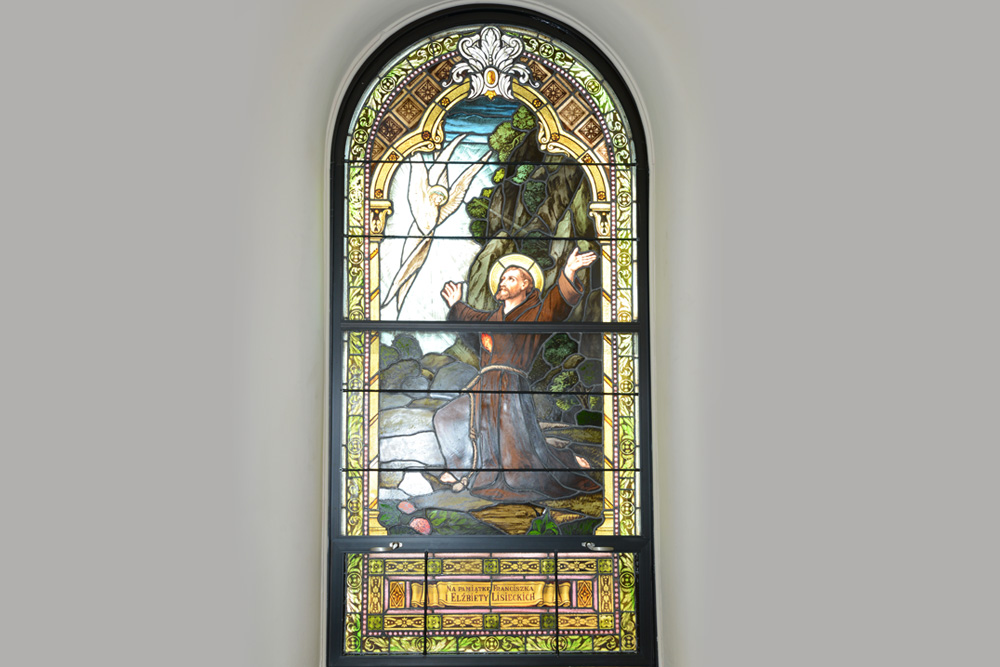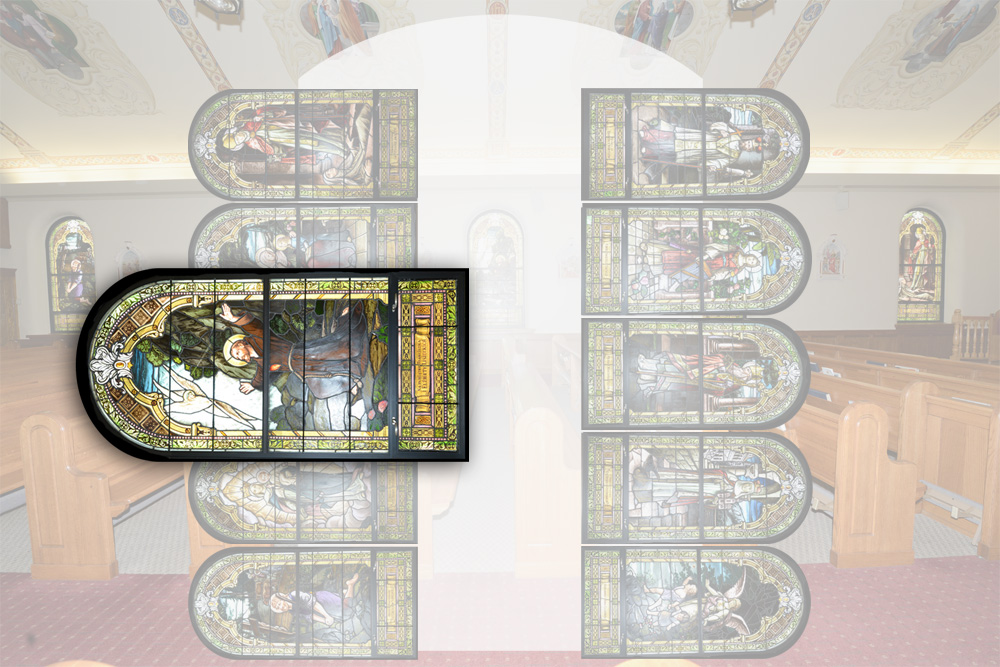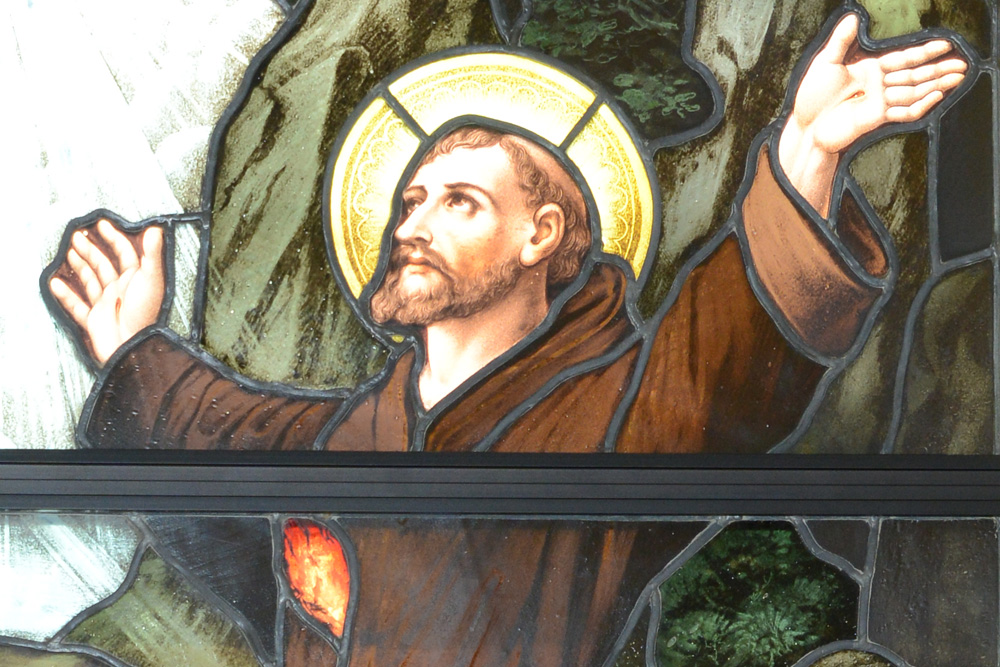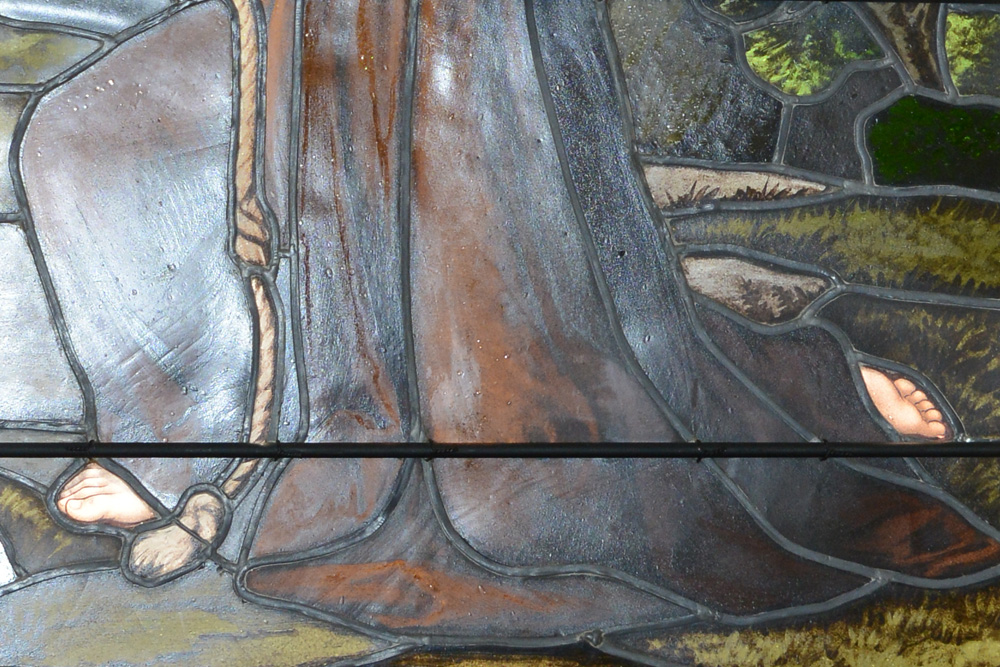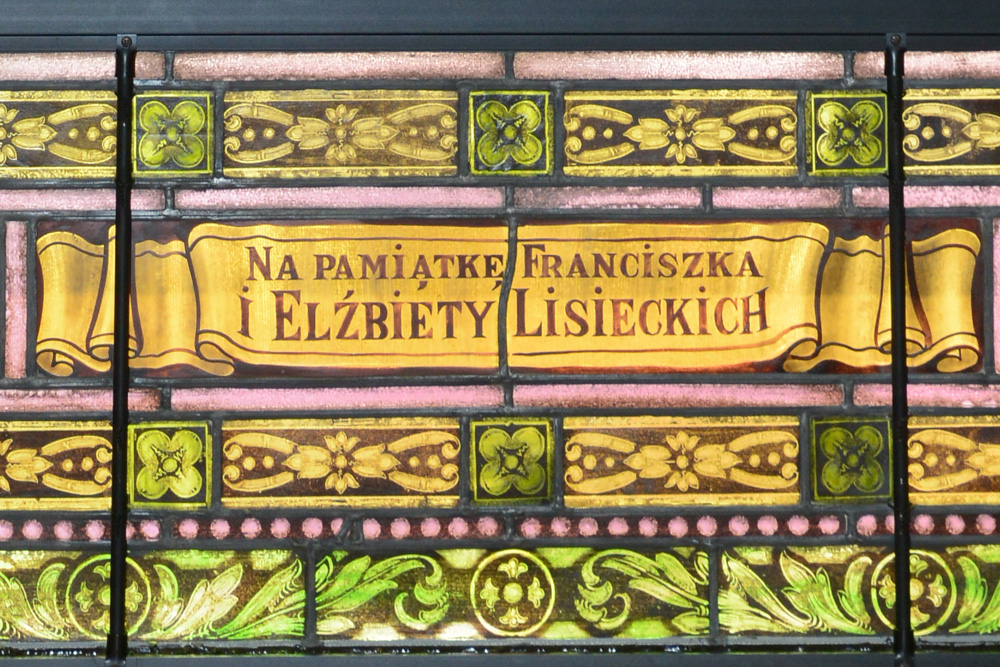St. Francis of Assisi
Feast Day October 4
Founder of the Franciscan Order, born at Assisi in Umbria, in 1181.
In 1182, Pietro Bernardone returned from a trip to France to find out his wife had given birth to a son. Far from being excited or apologetic because he'd been gone, Pietro was furious because she'd had his new son baptized Giovanni after John the Baptist. The last thing Pietro wanted in his son was a man of God -- he wanted a man of business, a cloth merchant like he was, and he especially wanted a son who would reflect his infatuation with France. So he renamed his son Francesco -- which is the equivalent of calling him Frenchman.
Although not a priest, Francis started to preach about returning to God and obedience to the Church. His companions came from all walks of life and Francis practiced true equality by showing honor, respect, and love to every person whether they were beggar or pope. His rule for himself and his followers came from directly from Scripture—they were to sell all their goods to give to the poor, take nothing on their journey, and take up the cross daily. Francis took these commands so literally that he made one brother run after the thief who stole his hood and offer him his robe! Following the Gospel literally, Francis and his companions went out to preach two by two. People noticed that these barefoot beggars wearing sacks seemed filled with constant joy. They celebrated life. It was this combined joy and preaching that led Francis to create one of our most beloved Christmas traditions—the Nativity scene. He used this to demonstrate the simplicity of Christ’s birth amidst the humble animals of the stable.
Francis did not try to abolish poverty, he tried to make it holy. When his friars met someone poorer than they, they would eagerly rip off the sleeve of their habit to give to the person. They worked for all necessities and only begged if they had to. Francis reasoned, what could you do to a man who owns nothing? You can't starve a fasting man, you can't steal from someone who has no money, you can't ruin someone who hates prestige. He and his followers were truly free.
Francis' brotherhood included all of God's creatures. He really felt that nature and all God's creations, were part of his brotherhood. The sparrow was as much his brother as the pope. One famous story involves those very same sparrows. Francis preached to hundreds of birds about being thankful to God for their wonderful clothes, for their independence, and for God's care. The story tells us the birds stood still as he walked among him, only flying off when he said they could leave. Francis' final years were filled with suffering as well as humiliation. Praying to share in Christ's passion he had a vision and received the stigmata, the marks of the nails and the lance wound that Christ suffered, in his own body.
Years of poverty and wandering had made Francis ill. When he began to go blind, the pope ordered that his eyes be operated on. This meant cauterizing his face with a hot iron. Francis spoke to "Brother Fire": "Brother Fire, the Most High has made you strong and beautiful and useful. Be courteous to me now in this hour, for I have always loved you, and temper your heat so that I can endure it." And Francis reported that Brother Fire had been so kind that he felt nothing at all. Francis never recovered from this illness. He died on October 4, 1226 at the age of 45. Francis is considered the founder of all Franciscan orders and the patron saint of ecologists, merchants, and animals.
St. Mary of Czestochowa Stained Glass
- Saint Isidore
- Our Lady of the Rosary
- Saint Francis of Assisie
- Saint Anne
- Saint Stanislaus the Martyr
- Saint Josefath
- Saint Cecilia
- Saint Adalbert
- Saint Hedwig of Silesia
- Guardian Angel
